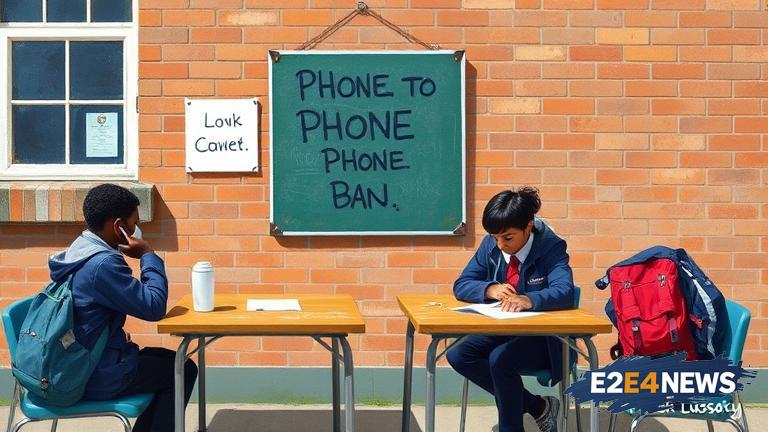In a bid to promote better learning and minimize distractions, Prestwich schools have introduced a phone ban, prohibiting students from using their mobile phones during school hours. The move has sparked a mixed reaction from parents and students, with some welcoming the initiative and others expressing concerns. The phone ban is aimed at reducing the amount of time students spend on their phones, which can be a significant distraction and hinder their ability to focus on their studies. By banning phones, the schools hope to create a more conducive learning environment, where students can engage more effectively with their teachers and peers. The ban is also intended to promote better social skills, as students will be encouraged to interact more with each other and less with their screens. However, some parents have expressed concerns that the ban may be too restrictive and could potentially hinder students’ ability to access important information or contact their parents in case of an emergency. Others have argued that the ban may not be effective in reducing distractions, as students may find other ways to access their phones or use other devices to access the internet. Despite these concerns, the schools are confident that the phone ban will have a positive impact on student learning and behavior. The ban is part of a broader effort to promote better digital citizenship and reduce the amount of time students spend on screens. The schools have also introduced a range of other initiatives, including digital literacy programs and workshops on online safety. These initiatives are designed to educate students about the potential risks and benefits of technology and promote responsible behavior online. The phone ban has also sparked a debate about the role of technology in education, with some arguing that it is a valuable tool that can enhance learning and others arguing that it is a distraction that hinders academic achievement. While some schools have introduced similar bans, others have taken a more nuanced approach, allowing students to use their phones in certain contexts, such as for research or creative projects. The Prestwich schools’ phone ban is a significant development in the ongoing debate about the role of technology in education and is likely to be watched closely by educators and policymakers. As the ban is implemented, the schools will be monitoring its impact and making adjustments as needed. The ban is a key part of the schools’ strategy to promote better learning and reduce distractions, and it is likely to have a significant impact on student behavior and academic achievement. In addition to the phone ban, the schools are also introducing a range of other initiatives to promote better learning, including new teaching methods and resources. These initiatives are designed to support students’ academic achievement and prepare them for success in an increasingly complex and rapidly changing world. The Prestwich schools’ phone ban is a significant step forward in the effort to promote better learning and reduce distractions, and it is likely to be an important model for other schools to follow. By banning phones, the schools are taking a proactive approach to promoting better learning and reducing distractions, and they are confident that the ban will have a positive impact on student behavior and academic achievement. The ban is a key part of the schools’ strategy to promote better digital citizenship and reduce the amount of time students spend on screens. As the schools continue to implement the ban, they will be monitoring its impact and making adjustments as needed to ensure that it is effective in promoting better learning and reducing distractions.





